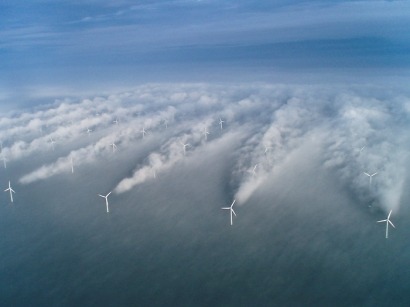
It contains analysis of electricity system operation and international wind energy experience to show that wind power is a potent means of reducing power sector CO2 emissions; and, wind power can provide a significant proportion of the UK's electricity needs with little impact on system operation or security.
These important issues are often misrepresented by those critical of wind power. Head of Strategy & Policy at GL Garrad Hassan Joe Phillips said: "A report that shows wind power to be effective should not be news. But misinformation about the technology has created confusion and this report is part of our efforts to present the technical evidence - so people can make up their own minds. The message we want to communicate to the public is clear: claims that wind power is ineffective are not supported by the evidence. Making good energy policy is difficult and there are many challenges. But one thing we can be sure of is, of all the factors influencing the development of the UK's energy system, the ability of wind power technology to contribute positively to that development is one of the things we can be completely confident in."
The report is published against the backdrop of heated political debate about the future of the UK energy sector, including comprehensive reform of the electricity market. Reg Platt, Research Fellow at IPPR said: "Energy policy should be determined on the basis of evidence and not by political whim. The facts are clear: wind power is an effective technology that can produce beneficial outcomes for both UK consumers and the UK economy. There is a lot of unfounded bluster out there on wind power. We need to rise above this and stick to the facts, so that we don't squander the economic opportunities that this important technology can provide."
Commenting on the new report, Gaynor Hartnell, Chief Executive of the REA, said today: “We welcome this report. It clearly explains how wind is being effectively incorporated into our power system and debunks familiar myths about this cost-effective technology.
“We need to move on to a better level of public discussion about wind energy in the UK. Politicians and policy must stick to a rational approach; opponents should be honest in their motivations and not dress them up in spurious arguments; and wind energy proponents must accept that some people think wind turbines are a blot on the landscape, and they are perfectly entitled to hold that opinion.”
The report presents three clear conclusions:
“This report shows unequivocally that wind power can significantly reduce carbon emissions, is reliable, poses no threat to energy security, and is technically capable of providing a significant proportion of the UK’s electricity supply with minimal impact on the existing operation of the grid. Claims to the contrary are not supported by the evidence,” Platt ends.
For additional information:

